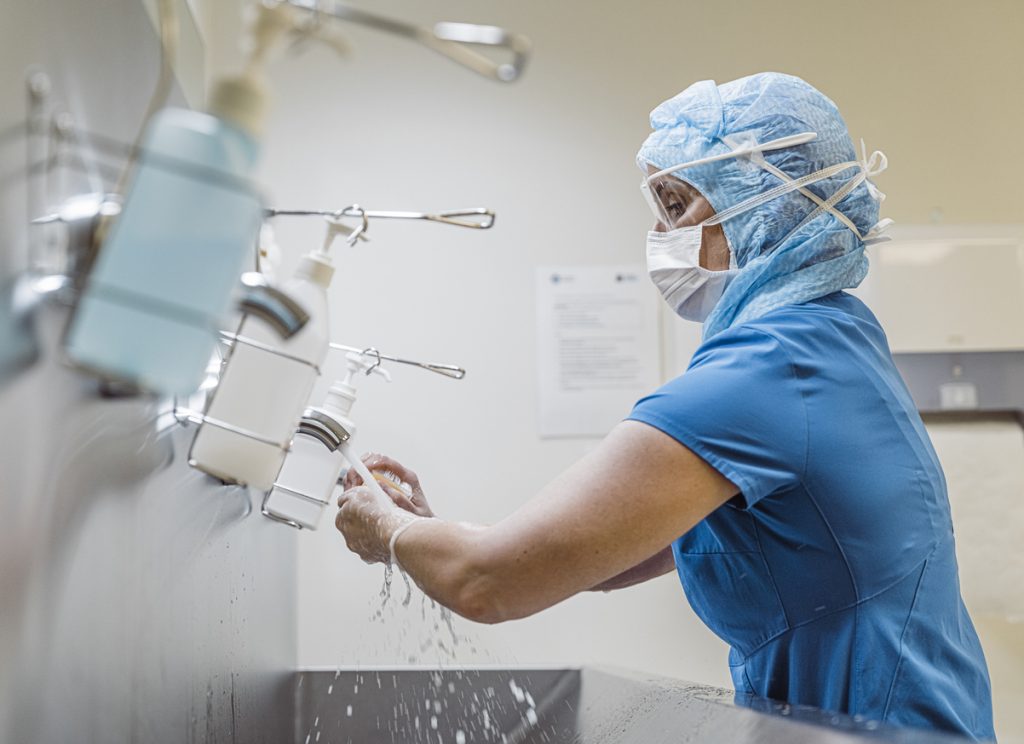With COVID-19 expanding dangers to sanitation workers and considering perceptions of their hesitance to wear individual defensive gear (PPE), we needed to figure out why workers in tropical nations don’t necessarily in all cases wear the PPE given, and how this can be settled.
Without sanitation workers, the endeavors to accomplish Sustainable Development Goal on sanitation would fall flat – yet these workers’ freedoms to somewhere safe and secure, poise, health, and prosperity are not focused on. In numerous nations, sanitation workers, for example, sewer cleaners and pit emptiers, work in conditions that put their health and lives in danger.
The World Health Organization (WHO) suggests that sanitation workers are adequately secured. In any case, sanitation workers in numerous nations need admittance to PPE – which is basic in guaranteeing their word-related health and security. Coronavirus has placed the focus on workers’ admittance to PPE as one of the components that can add to their security – one not given 100% of the time.
Health and Safety Hazards
exposure to poisonous gasses that gather in septic tanks and sewers can cause ongoing hacking, exhaustion, dazedness, and windedness. At extremely high levels, the inhaling of salts, carbon monoxide, and sulfur dioxide contained in the tanks and the lines where they work can cause sanitation workers to pass out or kick the bucket. Moreover, the diligent contact of the workers with the heap of illness-causing living beings in our waste can affect their health, which can likewise prompt passing.
What can be done?
It is critical to recognize sanitation workers as a vital piece of nearby communities (like Urban Localities). Without sanitation workers, occupied with strong waste or waste administration, the general health circumstance in a metropolitan settlement would be incredibly poor. Sanitation workers fill the basic role of ordinary cleaning that is expected for networks to work soundly. Be that as it may, as far as the work course of action most are either legally or casually utilized. Casual business is higher among female than male sanitation workers. Such work courses of action have an immediate bearing on the sort of advantages they get as well as their job and monetary security.
Healthcare support
Sanitation work is dubious work and COVID-19 has expanded the health issues for sanitation workers, without a trace of accessibility of appropriate Personal Protection Equipment (PPE), absence of waste isolation followed by squandering makers, and continuation of manual searching. Being fundamental workers, sanitation workers have needed to routinely offer their types of assistance to guarantee the working of the city. Consequently, the arrangement of health and well-being backing for these workers is urgent.
The high occupational health hazard related to such work makes it essential that sanitation workers get government-managed retirement advantages like life and health care coverage and annuity. Further, the level of social disgrace related to this work requires that they additionally get lodging support.
The unfortunate home circumstances and risky occupation conditions require that childcare offices are likewise made accessible to them. It is critical to note, nonetheless, that business game plans to impact the sort of government-managed retirement help that the workers get.
Personal Protective Equipment (PPE)
Workers dealing with human waste or sewage ought to be given legitimate PPE developed by certified PPE manufacturers in the USA, preparing the most proficient method to utilize it. workers ought to wash hands with sanitizer and water following the removal of PPE. The accompanying PPE kit is suggested for workers taking care of human waste or sewage:
- Goggles: to safeguard eyes from sprinkles of human waste or sewage.
- Face masks or Face Shields: to shield the nose and mouth from sprinkles of human waste or sewage.
- Waterproof gloves: to forestall exposure to human waste or sewage.
- Rain boots: to forestall exposure to human waste or sewage.
Training for Workers
All workers who handle human waste or sewage need to be prepared for disease counteraction. The preparation ought to remember data for essential cleanliness practices, use and removal of individual defensive gear, and legitimate treatment of human waste or sewage. Workers should likewise be asked to look for clinical consideration quickly if showing any signs or side effects of ailment, for example, heaving, stomach cramps, and watery loose bowels.
Vaccination Recommendations for Workers
Foster vaccination recommendations for workers in meetings with nearby health authorities. The suggestions on this depend on accepted procedures and systems. worker’s health and safety are probably going to change in explicit areas. Counsel a prepared health and security expert to make site-explicit worker health plans.
The COVID-19 pandemic poses a remarkable threat, yet in addition, gives a one-of-a-kind chance to lessen the dangers sanitation workers face in their workplace and to forestall deaths. Understanding the open door requests quick consideration and activity from all partners.
